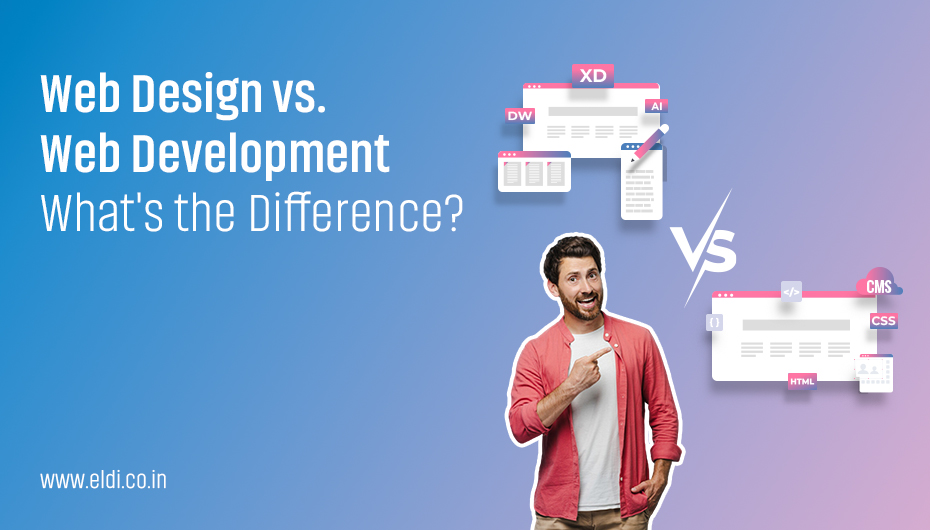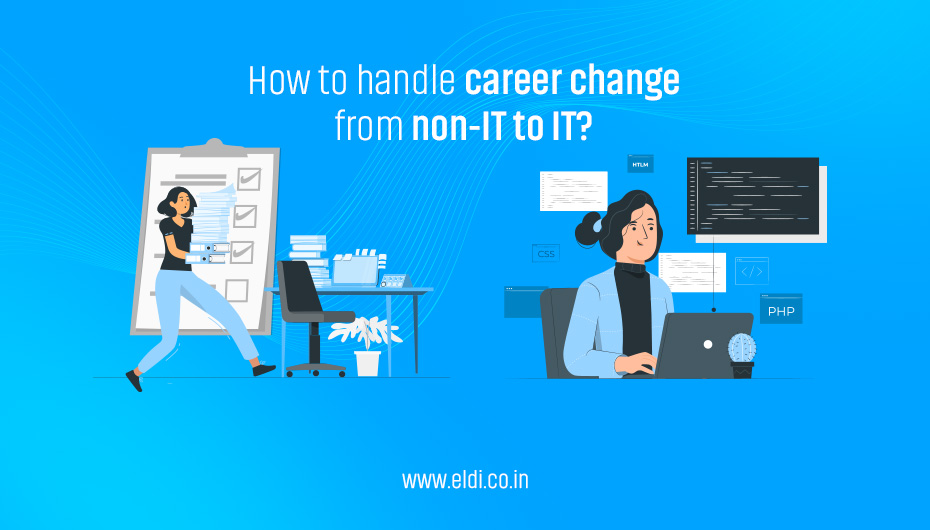
Get in Touch
- 1 What do web designers do?
- 1.1 Visual Design
- 1.2 Interaction Design
- 1.3 Brand Integration
- 1.4 Technical Skills
- 2 How to become a web designer?
- 2.1 Get Familiar with Web Design
- 2.2 Develop Technical Skills
- 2.3 Master Design Tools
- 2.4 Build a Strong Portfolio
- 2.5 Gain Practical Experience
- 2.6 Stay Relevant on Trends and Technologies
- 2.7 Aspects like SEO and Web Performance
- 2.8 Get Certified
- 2.9 Network with Other Professionals
- 3 What are the benefits of taking up a web design course?
- 3.1 Structured Learning Path
- 3.2 Hands-On Experience
- 3.3 Expert Instruction
- 3.4 Increased Confidence
- 3.5 Networking Opportunities
- 4 Parting Words
Web designing has become one of the most promising career fields because of the demand for internet usage in businesses and individual lives.
Web design is an interesting field as it is both creative and technical, and it involves solving problems to overcome them.
But the journey to attaining this dream of being a professional web designer is quite challenging especially if one does not have a guide to follow.
In this article, we’ll learn more about the steps and tips on how to start the process of mastering a web design course in Ahmedabad.
What do web designers do?
Web designers do a lot of practical tasks which include creating a fully-fledged website. Let us discuss some of them in detail.
Visual Design
-
Layout and Structure
Web designers who learn from IT Course in Ahmedabad are responsible for designing the appearance and organization of websites so that their components, such as text, graphics, and links, are comfortably positioned for optimal aesthetics as well as use.
-
Color Schemes and Fonts
They choose colors, fonts, and other visual materials that match the brand’s personality and improve the navigation experience.
-
Graphics and Images
Finding suitable graphics and images that would be relevant to the website content as well as its objectives. Web design training institutes can help you master it.
-
User Experience (UX)
Web design course maintains accessibility which entails the creation of proper interfaces and navigation structures that facilitate easy movement around the website.
-
Accessibility
Ensuring that the website is equally usable by all types of users, with a special focus on those with disabilities by following the accessibility standards and guidelines.
-
Responsive Design
Developing websites that will look good and function properly across multiple devices enabling their use on desktops, tablets, and even mobiles.
Interaction Design
-
Interactive Elements
Web design training Ahmedabad also teaches creating buttons, input fields, knobs, and other interface elements that make the application more engaging and effective.
-
Animations and Transitions
Adding some level of animation and transition in the website to make it more effective and appealing.
Brand Integration
-
Consistency
Assuring the website corresponds to the brand’s identity in terms of logos, colors, and messages.
-
Brand Messaging
Ensuring the brand voice and message are integrated cohesively within the website’s content and aesthetic.
Technical Skills
-
HTML/CSS
Web designers are not necessarily expected to program, but basic knowledge of HTML and CSS is essential to develop designs that can be easily coded by developers. They can learn this under a good UI/UX design course.
-
Design Tools
Familiarity with design tools such as Adobe Photoshop, Illustrator, Sketch, and/or Figma for the creation of mockups, prototypes, and design deliverables.
How to become a web designer?
Web designing is a process that requires a combination of creativity, technical proficiency, and an understanding of user experience (UX).
Here’s a step-by-step guide to help you start your learning in the best UI/UX design course in web design:
Get Familiar with Web Design
-
Understand Web Design Principles
Get to know what layout, color typeface selection, and other design concepts can make the websites beautiful and easily navigable.
-
Study User Experience (UX)
Learn about UI/UX course with placement and the quality that is a result of users’ interactions with websites. Web resources such as the Nielsen Norman Group provide useful information on best UX practices.
Develop Technical Skills
-
HTML & CSS
Best web design courses teach the basics that need to be followed when designing a website. HTML contains the elements of the document, whereas CSS presents them.
-
JavaScript
When it comes to application, the technology can be useful for making websites more interactive. It is for this reason that basic knowledge can be deemed appropriate enough for novice users.
-
Responsive Design
Find out how to design websites that are responsive to multiple devices, including desktop and handheld computers.
Master Design Tools
-
Graphic Design Software
For designing graphics, you can use software such as Adobe Photoshop, Illustrator, or Sketch.
-
Web Design Software
For web layouts and wireframes, some popular applications are Adobe XD, Figma, or Webflow.
Build a Strong Portfolio
-
Create Sample Projects
Begin by creating websites for fictitious clients or redesigning websites to demonstrate your portfolio.
-
Work on Real Projects
Give your time to non-profit organizations, and employers, or work for yourself or engage individuals or groups you know.
-
Showcase Your Work
Set up a personal website to showcase the work done, and elaborate on a specific project that was completed.
Gain Practical Experience
-
Internships and Entry-Level Jobs
Seek internships or entry-level jobs such as junior web designers to help them gain some working experience.
-
Freelancing
Bid for web design projects as a freelancer. You can find clients by using online platforms like Upwork, Freelancer, and Fiverr.
Stay Relevant on Trends and Technologies
-
Follow Design Blogs and Websites
Follow the best practices in the current web design culture by visiting websites such as Smashing Magazine, A List Apart, and CSS Tricks.
-
Join Online Communities
Join forums and groups such as Stack Overflow forums, Reddit subgroups such as Reddit Web Design, and LinkedIn groups.
Aspects like SEO and Web Performance
-
SEO
Learn the fundamental concepts of Search Engine Optimization to create well-ranked websites on the search engines.
-
Web Performance
Understand how to make websites faster and improve their performance so that users can have a great experience with them.
Get Certified
-
Certifications
It is advisable to undergo certification from reputable institutions. Some of the education courses offered by platforms such as Coursera, Udemy, and edX can offer important certifications.
Network with Other Professionals
-
Attend Conferences and Meetups
Attend specific ones like Adobe MAX, Awards Conference, and local web design meetups.
-
Join Professional Associations
AIGA and UXPA are some of the organizations that are available with information and contacts.
What are the benefits of taking up a web design course?
Structured Learning Path
-
Comprehensive Curriculum
Effective courses enable one to go through a well-coordinated syllabus from basics to advanced levels systematically.
-
Step-by-Step Guidance
Tutors accompany you throughout the teaching and learning process to ensure that you acquire a good foundation for the next lessons.
Hands-On Experience
-
Practical Projects
Many classes involve hands-on activities and exercises that you complete themselves which permits you to put what you learned into practice.
-
Portfolio Development
Course projects are beneficial as they contribute to the formation of a portfolio of accomplished work, which can be demonstrated to employers or customers.
Expert Instruction
-
Industry Experts
Most of the courses are conducted by people with lots of work experience and as such they bring real-life experiences as well as industry standards.
-
Feedback and Mentorship
Instructors provide timely feedback and guidance for the students and assist them in enhancing their performance.
Increased Confidence
-
Skill Mastery
Acquiring formal knowledge through a structured course increases your confidence in your skills.
-
Problem-Solving Skills
Many courses being offered these days come with problem-solving activities that improve analytical and critical thinking abilities.
Networking Opportunities
-
Peer Interaction
Another benefit of taking a web design course is that it gives you a chance to engage with other learners, which means that you can exchange information and work on assignments together.
-
Professional Connections
Building relationships with instructors and fellow students is of great benefit and can provide professional contacts and jobs.
Parting Words
The journey of becoming a web designer is one of creativity, technical skill acquisition, and innovation.
From learning the basics of design to getting practical training and ideas about recent innovations, every step counts in the design world.
Get ready to step up to the next level – welcome challenges, look for feedback, and feed your imagination.
Networking, continuous learning, and commitment to excellence searching for a web design course near me will help you to be successful in this challenging profession.
However, always understand that everyone’s journey is different and that you have the chance to learn and contact us and carve your niche in the dynamic industry of web design.
Your success awaits here – let your journey begin.




